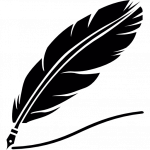Welcome to my Room
From as far back as I can remember, my inspiration as writer, poet, and activist has been social and environmental justice. To be successful in this world you need to understand how it works, and at an early age I learned to experiment and study history.
Today my life seems like a series of those experiments and studies, which have deepened my understanding of our road to mutual success on this beautiful little planet or to our mutual destruction.
Here in my room, you’ll find my archives and my desk. Some of my life too, since work and life are not separate. Poetry, fiction, history, memoir, articles on issues I feel passionately about. Back in 1968 at Drop City, where we truly believed that the Revolution was now and here, I built an early solar heater onto the back of my dome. After a year on the Navajo reservation in 1970, I learned woodworking, worked for over forty years in a coop woodshop in the Bay Area, helped to stop rapid gentrification in the arts & crafts industrial zone as an author of the West Berkeley Plan, and later as a planning commissioner.
I was one of the founders of Indigenous Peoples Day; I studied indigenous languages and translated classical poetry from ancient Native America. I was an activist in the cooperative movement and wrote a history of when early labor unions tried to transform America into a Cooperative Commonwealth through worker cooperatives. I became a street poet, editor and publisher. Welcome into my room.
WRITER
Poet, translator, fiction and non-fiction writer on social justice and historical perspectives.
ACTIVIST
Exploring worker collectives and the rise of the cooperative movement in the 21st Century.
HISTORIAN
Celebrating the accomplishments of native cultures and the works of ancient American poets.
Latest posts
Get New Content Notifications
Don’t miss a post! Subscribe here to get an email notification whenever I update the website with new work.

How I became a poet
Since my grandpa was a communist, you’d think we’d have subversive literature all around the house, but the main reading was the New York Daily News and an occasional Reader’s Digest. Also an illustrated Webster’s Dictionary, full of interesting drawings and information, which I sometimes leafed through. A Bible which went unread. And Elbert Hubbard’s Scrapbook, which my mother occasionally opened. That is where I first encountered poetry, including working class poetry, some with a radical slant.





